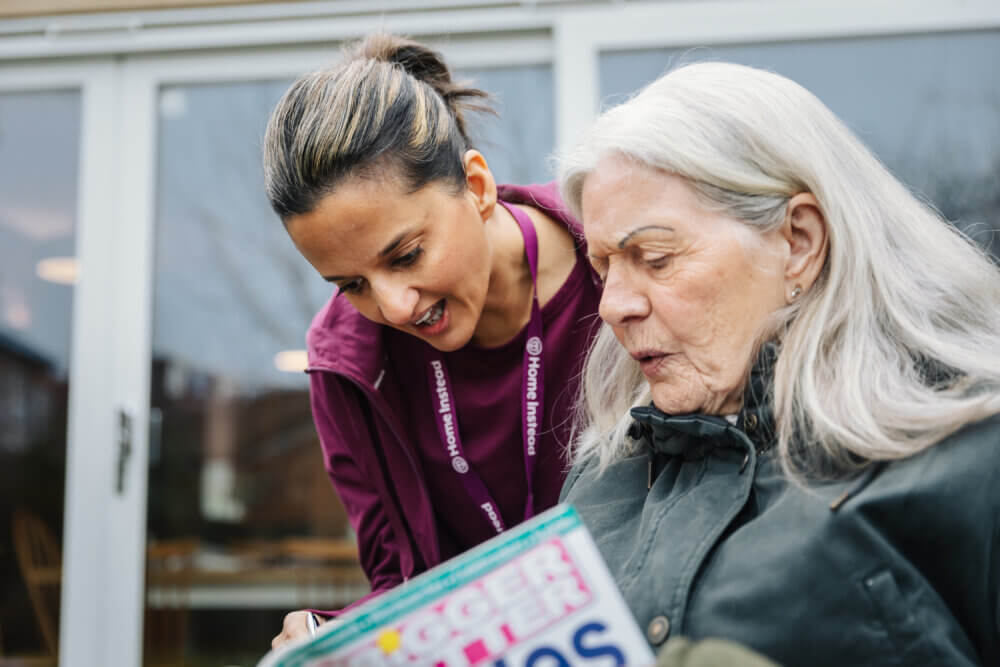Dementia – Spot the Signs
At Home Instead we always advise people to seek medical help, but it can be useful to understand the early signs of dementia in order to access professional support.

Early signs of Dementia or Alzheimer's
Problems with remembering
Often, one of the first symptoms is that people may become mildly forgetful, particularly with early Alzheimer’s disease. This may materialise as asking the same question repeatedly because they have forgotten the answer. Difficulties occur in short term memory to begin with which can also make it difficult to remember the plot of a story on TV.
Conversation
Some communication challenges link to memory loss because it affects someone’s ability to remember words or to remember what was said earlier in the conversation or what they had intended to say when they started to say something. Difficulties with language are often associated with frontotemporal dementia, and speech problems can occur if vascular dementia is the cause of a stroke. Reading and writing can also become difficult because someone with dementia may forget what they have read or written just a few moments before. We have written a more detailed article about conversation here, which also gives some top tips of how to communicate with someone who is living with dementia.
Solving problems
Day to day tasks such as cooking a meal can become extremely challenging as they require a combination of memory, following sequences and linking information together to decide a course of action. So, friends or family members might notice that meals have not gone according to plan as well as spotting common forgetfulness such as leaving a pan on a hot cooker.
Eyesight
Other forms of dementia such as dementia with Lewy bodies may lead to disturbed vision and someone might imagine that they can see things that appear real even if they are not. One type of Alzheimer’s can also cause someone to struggle with depth perception making stairs difficult to navigate.
Hearing loss
There is some research which suggests a link between hearing loss and dementia and we have written a separate article on this subject. Although diagnosis is improving sometimes hearing loss can be misdiagnosed as dementia and vice versa, so it is well worth seeking an expert opinion
Physical changes
Some forms of dementia can lead to changes in movement and you may notice changes such as coordination, balance or stiffness, but as with many symptoms these could also be due to natural ageing.
Emotional changes
You may notice that someone with dementia appears more anxious, frightened or sad. It is not uncommon for changes in mood or behaviour to stem from frustration because of other loss of abilities.

Taking Action
The Alzheimer’s Society has developed a comprehensive checklist to help people to recognise the symptoms of dementia. This checklist and the signs that we have listed above do not always lead to a diagnosis of dementia but they may help to point to other conditions, so our recommendation is always to seek professional medical help. Receiving the help needed from an early stage can bring huge relief for the whole family as well as someone living with dementia. Home Instead also has a series of informative videos with people sharing their own experiences and advice.

Case study
Mrs S is a 93-year-old lady supported by home Instead (Stourbridge Hagley and Halesowen). She has lived with Alzheimer’s for many years.
Mrs S was able with support from HI to support herself in the early stages of her Alzheimer’s journey, however in 2023 her son made the decision to move back from abroad to care for her as the decline in her brain function and memory was more noticeable, he felt she needed round the clock care.
Home Instead visit daily to support with her personal care, as she can no longer support herself in this area, they support with nutrition and hydration needs during visits.
